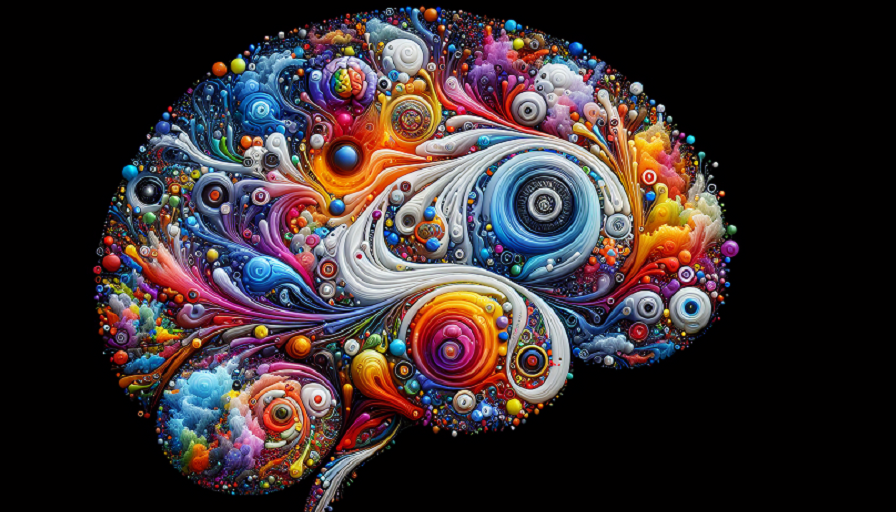
Forgetfulness happens to everyone – misplacing keys, blanking on a name, or walking into a room and wondering why. But sometimes, memory lapses are more than just ordinary aging. Cognitive decline refers to noticeable changes in memory, thinking, and reasoning that go beyond what’s expected for age. Catching the early signs matters because timely action can slow progression and support long-term brain health.
Contents
Normal Aging vs. Cognitive Decline
It’s important to understand the difference between typical aging and early decline. With age, the brain naturally slows in processing speed, and recall might take longer. However, normal aging does not severely disrupt daily life. Cognitive decline, on the other hand, affects the ability to perform everyday tasks, solve problems, or remember important details. The key distinction is whether memory changes interfere with independence.
Common Early Signs to Watch For
Subtle changes often appear years before more serious conditions like dementia. Recognizing these early signals gives individuals and families time to adapt and seek support. Some of the most common signs include:
- Frequent forgetfulness: Regularly misplacing items or repeating the same questions.
- Difficulty planning or problem-solving: Struggling with tasks that require steps, such as following a recipe or managing bills.
- Confusion with time or place: Losing track of dates, seasons, or familiar locations.
- Trouble with familiar tasks: Forgetting how to use common tools or perform regular routines.
- Language challenges: Difficulty finding words, following conversations, or writing clearly.
- Reduced judgment: Poor financial decisions, neglecting safety, or decreased attention to hygiene.
- Withdrawal: Avoiding social activities, hobbies, or work due to confusion or lack of confidence.
- Mood and personality changes: Increased irritability, anxiety, or noticeable shifts in behavior.
Noticing one or two of these occasionally may not be alarming. But when patterns emerge or symptoms worsen, they should not be ignored.
Risk Factors That Contribute to Cognitive Decline
Several factors can accelerate brain aging and increase the risk of decline. These include:
- Chronic stress, which elevates cortisol and damages memory networks.
- Cardiovascular issues such as high blood pressure or diabetes.
- Sedentary lifestyle and lack of physical activity.
- Sleep disturbances, which prevent memory consolidation.
- Poor diet lacking essential nutrients like omega-3 fatty acids and antioxidants.
- Social isolation, which deprives the brain of stimulation and connection.
Addressing these risk factors early can make a significant difference in slowing decline and protecting cognitive health.
When to Seek Medical Help
Occasional memory slips are common, but persistent or worsening symptoms should be evaluated by a healthcare professional. Early diagnosis allows for better treatment options, planning, and lifestyle adjustments. Doctors may conduct cognitive assessments, neurological exams, or imaging tests to determine the underlying cause. Sometimes, conditions like vitamin deficiencies, thyroid disorders, or medication side effects mimic cognitive decline and are reversible once treated.
Steps to Support Brain Health
While not all causes of cognitive decline can be prevented, many lifestyle habits support brain resilience. These include:
- Exercise regularly: Aerobic activity increases blood flow to the brain and supports memory.
- Eat brain-friendly foods: Diets rich in leafy greens, fish, berries, nuts, and whole grains reduce inflammation and support cognition.
- Stay mentally active: Reading, puzzles, and learning new skills strengthen neural pathways.
- Protect sleep: Consistent, high-quality rest consolidates memory and clears toxins from the brain.
- Stay socially engaged: Conversations, friendships, and group activities stimulate the brain.
- Manage stress: Mindfulness, yoga, or simple relaxation techniques keep cortisol in check.
Small, consistent changes create long-term protection for cognitive function and reduce risks of decline.
The Role of Nootropics in Cognitive Support
Some people turn to nootropics, or brain supplements, to complement healthy habits. Natural compounds like ginkgo biloba are studied for supporting blood flow to the brain, while Bacopa monnieri has shown potential benefits for memory performance. Omega-3 fatty acids, commonly found in fish oil, are linked to long-term brain health. While no supplement can reverse decline, they may provide additional support when paired with lifestyle strategies.
Early signs of cognitive decline can be subtle but meaningful. Recognizing them early provides opportunities for medical evaluation and proactive lifestyle changes that may slow progression. Supporting brain health through exercise, nutrition, sleep, social engagement, and stress management is key. With awareness, early action, and supportive tools like nootropics, it’s possible to maintain sharper thinking and resilience well into later years.

